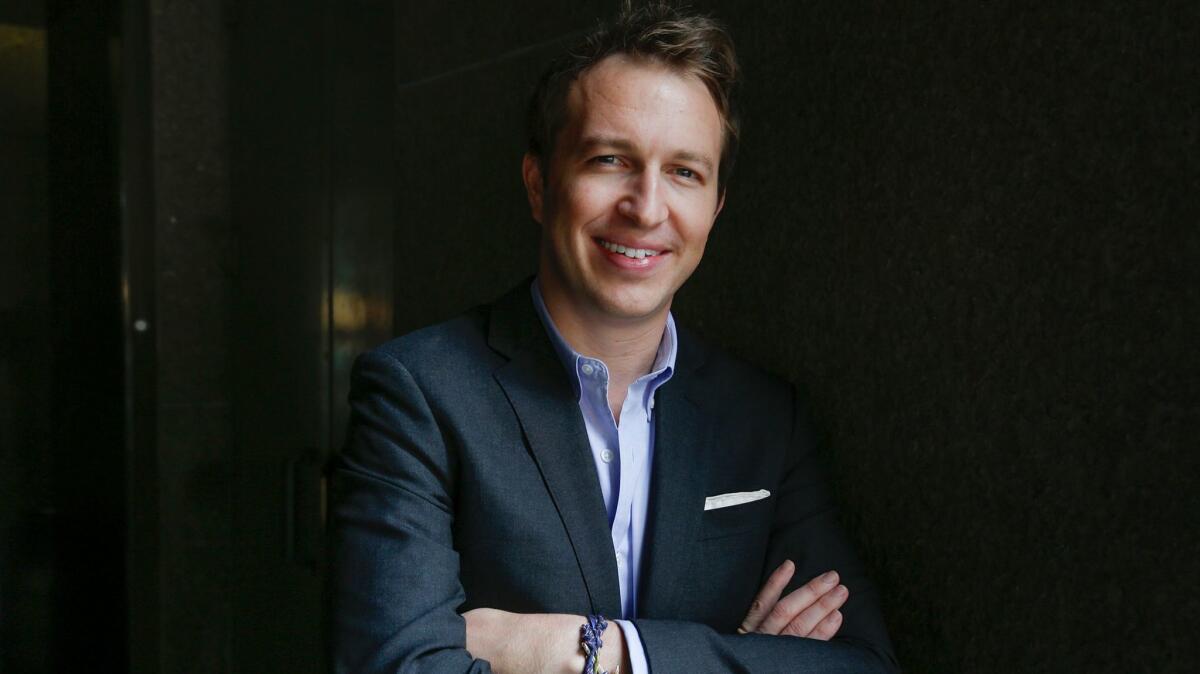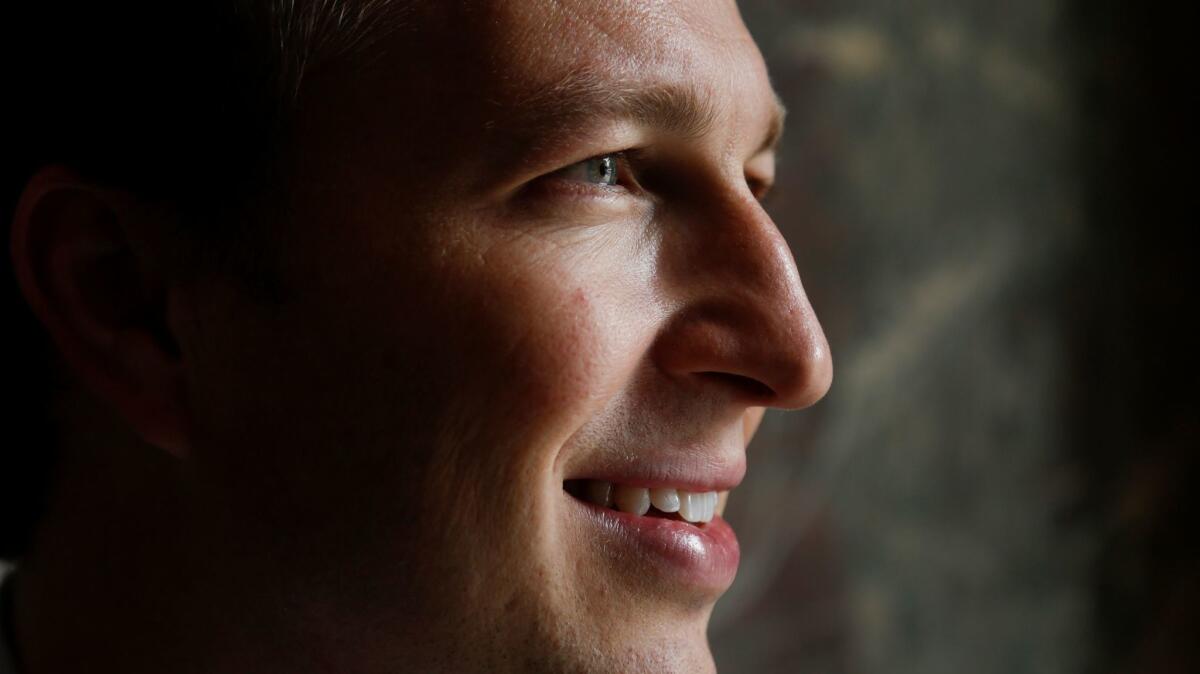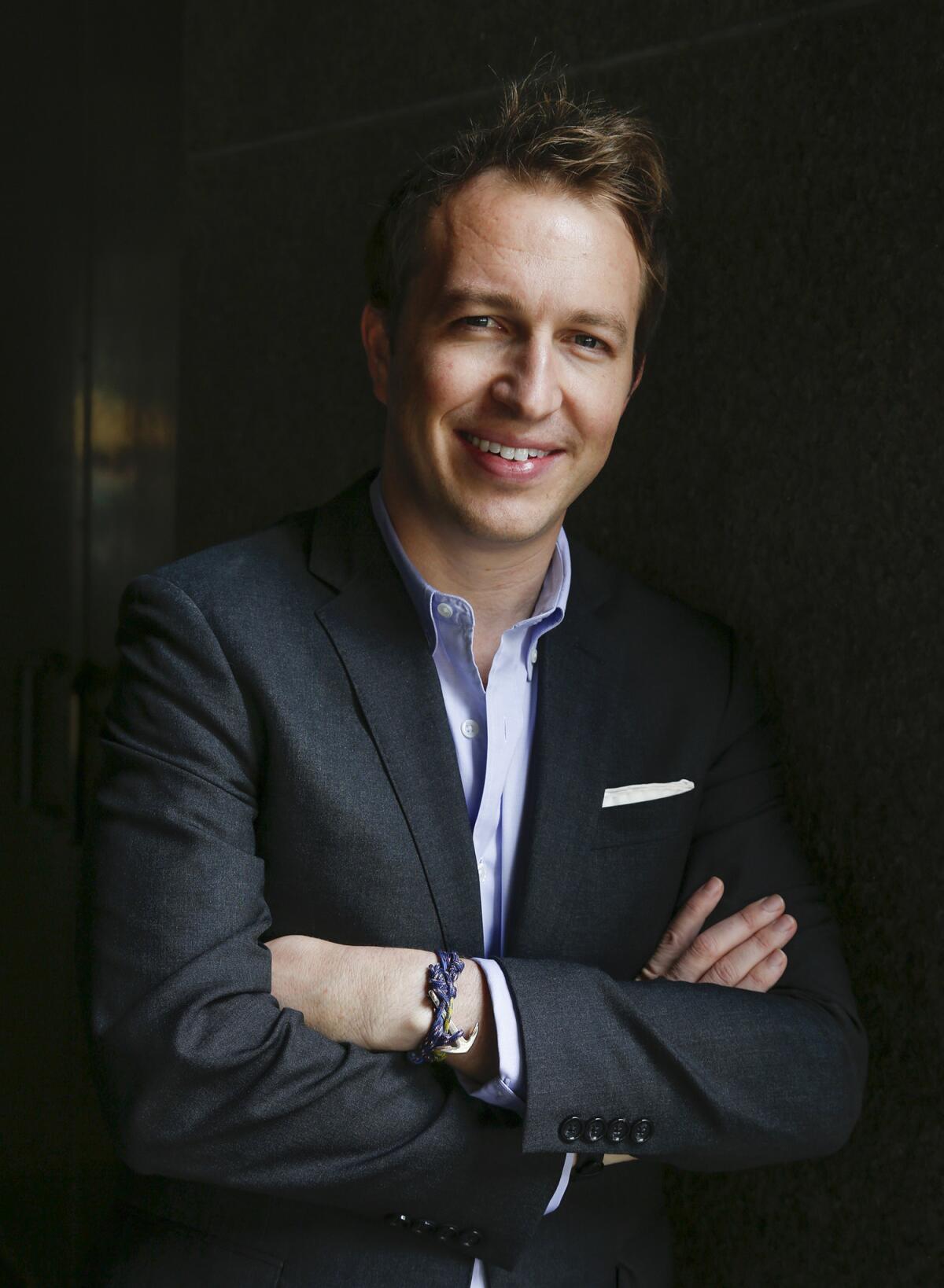Q&A: Nick Melvoin has a lot of ideas for L.A.’s schools

A special prosecutor for teacher sexual misconduct, a single-payer healthcare system for L.A. Unified, teacher evaluations based 40% on “measurable academic growth” — incoming school board member Nick Melvoin has ideas on how to improve schooling in Los Angeles.
Melvoin, 31, won a seat on the Los Angeles Board of Education after a historically expensive, hard-fought campaign marked by relentless mudslinging from outside groups, which contributed nearly $15 million. Much of that mudslinging was paid for by supporters of charter schools on behalf of Melvoin against school board President Steve Zimmer, a two-term incumbent.
The election of Melvoin in District 4, which stretches from the Westside to the west San Fernando Valley, and Kelly Gonez in District 6 gives charter supporters their first majority on the seven-member board of the nation’s second-largest school system.
Charter schools are publicly funded but privately operated, and are typically set up as nonprofits in L.A. Unified. They are free of many of the restrictions placed on traditional public schools.
Melvoin sat down with the Los Angeles Times education team to answer questions about what lies ahead. Some of his ideas might surprise the pro-charter forces that helped launch him into office. For one thing, Melvoin appeared to side with traditional campuses that object to the sharing of classroom space with charter schools.
The top 5 items on his to-do list
1. Financial transparency, as a prelude to tackling the long-term budget deficit.
2. A rebooted relationship between charter and district schools through which successful schools become models for struggling ones. He believes the competition for classroom space can be managed with less contention.
3. Universal enrollment. He wants to see a single system for enrolling in any public school, including charters. (The district has one in the works, but its plan right now doesn’t include charters.)
4. A reinvented system for recruiting, training, placing and evaluating teachers.
5. A process that would put all schools under an accountability system similar to charters, which are supposed to show every five years that they are academically strong and financially sound.
Here are some of Melvoin’s thoughts on key topics:

My goal is to mitigate charter growth by improving district schools.
— Nick Melvoin
On charter school oversight
”Some charters have been around for 25 years,” Melvoin said. “Why can’t there be a reauthorization process that’s less laborious [for them] than for new charters?
“I think a lot of the issues we see … stem in part from the hostility between the district and charters.… I’m hopeful the relationship that I have with certain charter leaders can help mitigate some of those issues.”
On whether to limit charter growth or limit it to lower-income areas where traditional schools are struggling academically
“I haven’t been in the business of putting in artificial limits. ... My goal is to mitigate charter growth by improving district schools,” Melvoin said, and “freeing traditional schools from the red tape that keeps them from competing.
“The opportunity to choose a better school for your kids should not be limited to low-income communities,” he added.
“We can’t stop a charter from coming into West L.A. … but I would really hope a group of parents or a [charter management organization] would come to us and say, ‘We’re thinking of starting a charter.’ So we can say, ‘Why? Where are your needs not being met within the existing ecosystem? Can we try to work collaboratively to do that?’”
Melvoin sees a “win-win” when Westside parents leave private schools for charters, because these families then become invested in such causes as raising revenue for all public schools: “We now have a nice ally in that fight.”
On having charters comply with the state’s public records and open meetings laws
Although Melvoin has opposed current legislation on the issue, he said “we should move to a place” where charters are operating “under the same framework” as traditional schools when it comes to public records and open meetings.
On providing charter schools with classroom space on traditional campuses
“The first school I visited last week was Walgrove [a traditional public school] … and one of the things they showed me was a classroom that’s not an instructional classroom, but they use for a half-theater, half-art-type program,” Melvoin said. “And I think that is a valid concern of parents, like, are these classrooms going to be taken away?”
He said he didn’t think such spaces should be taken from traditional schools and made available to charters.
Charter backers win their first L.A. school board majority »

On managing and evaluating teachers
About 40% of a teacher’s evaluation should be based on measurable academic growth, such as standardized test scores, Melvoin said.
Like charters, he said, traditional schools should have more flexibility to hire and fire staff. He said he doesn’t think “99% of teachers” are satisfactory, which he believes is what the current system implies.
“I’m not just talking about firing our way out of this problem,” he said. “It’s about connecting teachers with opportunities for growth.”
He suggested also connecting the most effective teachers with the most challenging schools, perhaps through one-year residency programs or extra money: “Right now there’s no real incentive for our best teachers … to teach in tough schools, and I’d love to see us think creatively.”
On the district's budget problem
Melvoin said that new employees should have to accept less generous benefits and retirement packages, and that the district should look at consolidating and closing schools to reduce overhead. One way to contain health costs, he said, would be to use a single insurance provider or even set up a single-payer, government-run health system managed by L.A. Unified.
He said he also wants to prevent the need for future costly sexual misconduct settlements: “I’ve talked to folks about bringing in kind of a special investigator or special prosecutor. ... It’s not just that irreparable harm to the kids, but to the whole district — because $300 million [in settlements] in the last four years … is really then doing a disservice to all kids.
“I think part of the reason the settlements were so high is because the district knew about certain instances and then didn’t move quickly enough.”
Right now there’s no real incentive for our best teachers … to teach in tough schools, and I’d love to see us think creatively.
— Nick Melvoin
On L.A. Unified Supt. Michelle King
“I want to sit down with her in the next couple of weeks,” he said. “My plan right now is to work with the superintendent. I don’t exactly know what her vision is.
“The first job would be student achievement,” he added.
He expects to set benchmarks for growth that include specific, more ambitious targets for improved standardized test scores and progress on the percentage of students qualifying for admission to a state college, he said. He also expects to see within two years a plan to fix the pension and retiree health benefits deficit and a universal enrollment system that includes charter schools.
Twitter: @howardblume
Sign up for Essential California
The most important California stories and recommendations in your inbox every morning.
You may occasionally receive promotional content from the Los Angeles Times.








